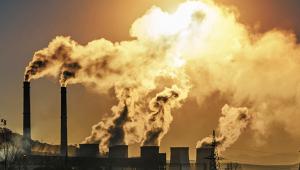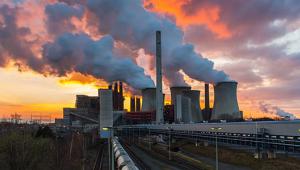The United Nations conference, known as COP21, will see 147 world leaders and negotiators from 195 countries and hammer out an agreement aimed at slashing carbon emissions, preventing dangerous rises in temperature and earmarking climate funding for developing countries.
Speaking on the eve of the conference opening in Paris, UN secretary general Ban Ki-Moon said he was “reasonably optimistic and convinced” that world leaders would adopt an ambitious universal plan over the next two weeks.
UK prime minister David Cameron is expected to call for a robust legal framework to ensure agreed targets are met and emphasise the role of the private sector.
US president Barack Obama on the other hand is reported to be limited in terms of concrete promises and will shy away from anything legally binding, with initiatives such as his Clean Power Plan wildly unpopular in the US Congress.
While negotiators will spend the next two weeks working out the text of the agreement, world leaders will be at the conference for one day only and are expected to make some significant announcements.
A new $500m initiative to boost large-scale action towards cutting emissions in developing countries has already been announced on behalf of Germany, Norway, Sweden and Switzerland.
The Transformative Carbon Asset Facility will measure and pay for emissions reduction in areas such as renewable energy, solid waste management, low carbon cities and transport.
Another plan, titled Mission Innovation, will see a group of 20 countries including the US, France and India seek to double their investment in clean energy research over five years.
France and India will also announce a global alliance that aims to bring together 100 solar-rich countries in tropical regions to quickly advance the generation of solar power.
The World Bank will present a report identifying the steps that need to be taken in Africa to build the continent’s resilience to climate change, which the bank estimates will need $16bn of funding before 2020. A recent report, also from the World Bank, found that climate change could push 100 million people into poverty worldwide, with Africa and other developing regions the worst affected.
While the discussions at COP21 are expected to revolve around limiting the global temperature rise to 2°C, many argue that for developing countries most vulnerable to the effects of climate change this will not secure a safe future.
A group of 48 of the least developed countries, World Bank president Jim Yong Kim, the Caribbean Development Bank and numerous NGOs have voiced concerns that even a 2°C rise will result in a very different world and some have called for a new target of 1.5°C.
Kim said that, in the context of a 2°C rise, over 40% of the land in sub-Saharan Africa currently growing maize will no longer be able to do so, fights over water will be extreme, coral reefs will be wiped out and fisheries will be fundamentally changed.
“Even at 2°C we’re going to be living in a world where we have to spend a lot of time, energy and money adapting to very different conditions. We’ve got to move and we’ve got to move quickly,” he warned.
In the run up to COP21, the United Nations Framework Convention on Climate Change (UNFCCC) received 180 voluntary climate action plans from countries, known as Intended Nationally Determined Contributions (INDCs).
While these have been found to make huge strides in cutting global emissions, many have noted they are not enough to limit the temperature rise to the current agreed target.
World leaders are now being urged from all sides to adopt an ambitious plan over the next two weeks. But many have questioned just how much the discussions will deliver and if big commitments are made, whether even these will be enough.












